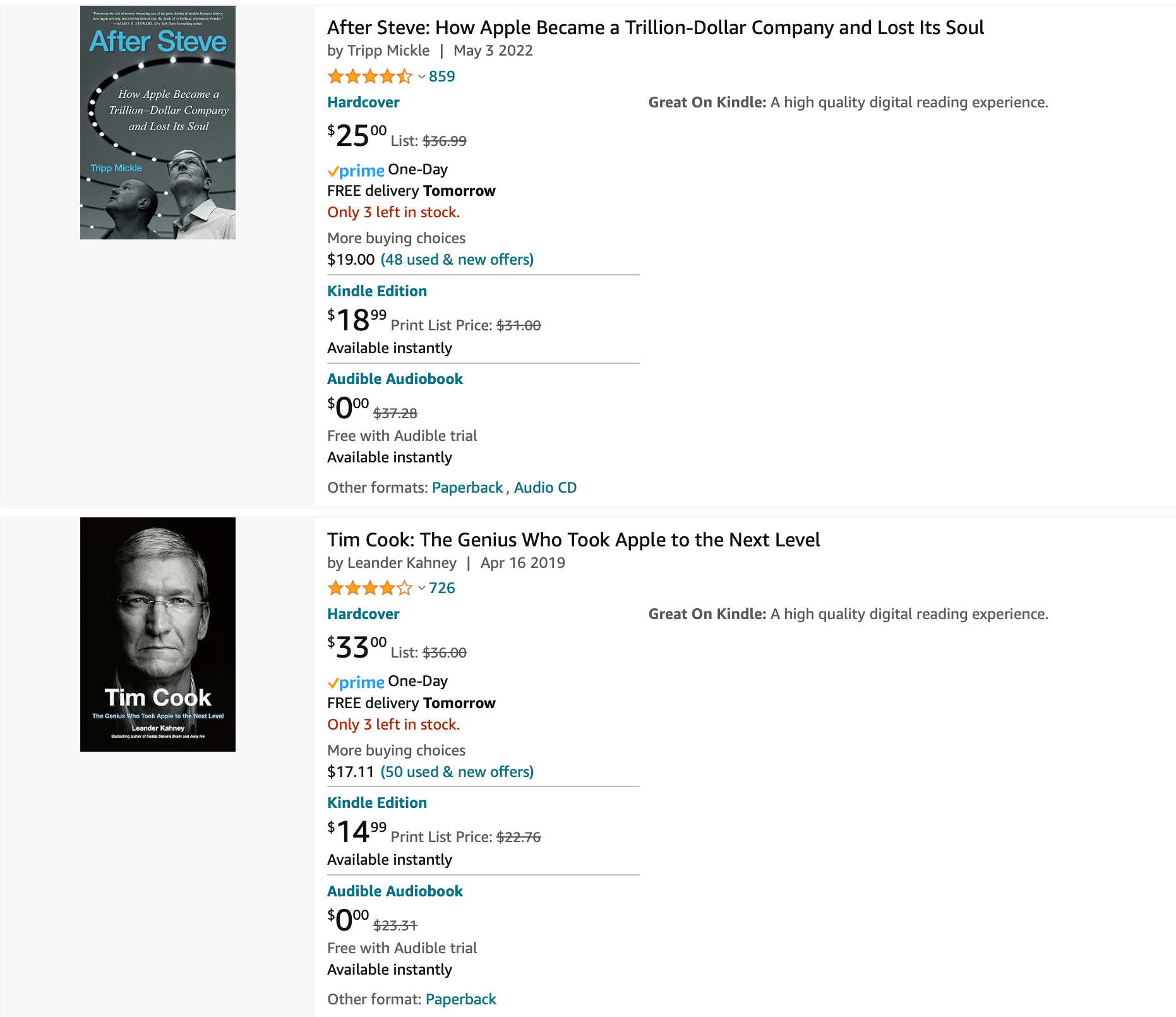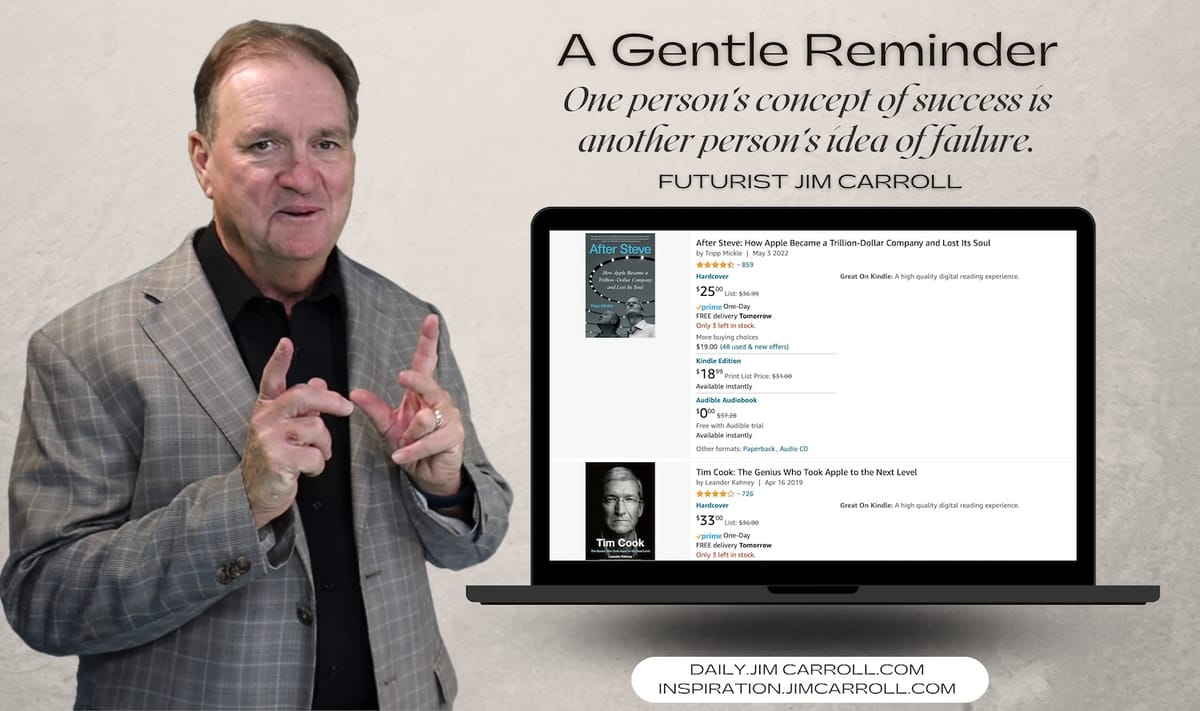"A Gentle Reminder: One person's concept of success is another person's idea of failure" - Futurist Jim Carroll
A few days ago, I finished the book "After Steve: How Apple Became a Trillion-Dollar Company and Lost Its Soul."
It was a good read, and so after I was done, I went to Amazon to find another book about Apple or Steve Jobs. The algorithm threw me this, and I grabbed a screenshot. Right next to the book I had read was "Tim Cook: The Genius Who Took Apple to the Next Level."

So let me get this straight: according to one book, Apple in the post-Steve Jobs era has been a failure, 'losing its soul,' while at the same time, Tim Cook is a business genius.
Got it.
This got me thinking though - how can a company or an individual at the same time be a failure and success?
- people have different values, goals, and priorities in life that shape their definitions of success or failure
- personal experiences will shape individuals' perspectives on what constitutes achievement
- some people measure success in material terms, while others prioritize personal fulfillment or relationships
- age, life stage, and generational differences can lead to contrasting ideas of success vs failure
- Individual personalities, strengths, and talents shape what types of accomplishments are considered to be worthy.
- Educational backgrounds and exposure to different ideas can influence perspectives on success
- levels of risk tolerance and comfort with uncertainty can impact definitions of failure or success
- personal struggles, challenges, or disabilities may redefine what constitutes a successful life
- levels of ambition, drive, and resilience vary among people, and that can shape what is perceived as a successful outcome
- constantly evolving societal norms and policies can most certainly lead to differing perspectives
In essence, one person's success is another person's failure.
In the case of Apple, both can be true. The book I read emphasized that while Tim Cook is a genius at maximizing the operations of Apple, becoming an efficient streamlined superpower, the company saw few great product innovations under his reign. Notably, only AirPods and the Apple Watch emerged as entirely new product lines, and so from that viewpoint, it was a product innovation failure. At the same time, he masterminded issues related to supply chain, production, manufacturing, and more, leading it to become an efficiency powerhouse. Failure and success wrapped up in one!
The fact is, this conundrum of different viewpoints is important to your personal development. That's why you should never obsess over how others might think you are doing - what matters is how YOU think you are doing. What doesn't matter is the judgment of others - what matters is your judgment of yourself. It's often irrelevant as to whether you meet the expectations of others - it's whether you believe you gave it a great effort.
The definitions of success and failure are often very different, and so this should guide you in the value you place on those assessments by anyone other than yourself!
Futurist Jim Carroll often considers himself to be a failure and a success at the same time, particularly while out for a round of golf.

